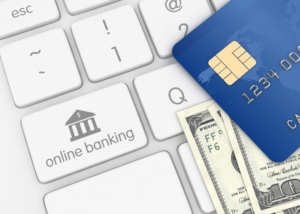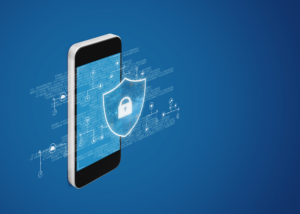Mastering Digital Financial Literacy: Key Skills for a Secure and Savvy Future
go.ncsu.edu/readext?998641
en Español / em Português
El inglés es el idioma de control de esta página. En la medida en que haya algún conflicto entre la traducción al inglés y la traducción, el inglés prevalece.
Al hacer clic en el enlace de traducción se activa un servicio de traducción gratuito para convertir la página al español. Al igual que con cualquier traducción por Internet, la conversión no es sensible al contexto y puede que no traduzca el texto en su significado original. NC State Extension no garantiza la exactitud del texto traducido. Por favor, tenga en cuenta que algunas aplicaciones y/o servicios pueden no funcionar como se espera cuando se traducen.
Português
Inglês é o idioma de controle desta página. Na medida que haja algum conflito entre o texto original em Inglês e a tradução, o Inglês prevalece.
Ao clicar no link de tradução, um serviço gratuito de tradução será ativado para converter a página para o Português. Como em qualquer tradução pela internet, a conversão não é sensivel ao contexto e pode não ocorrer a tradução para o significado orginal. O serviço de Extensão da Carolina do Norte (NC State Extension) não garante a exatidão do texto traduzido. Por favor, observe que algumas funções ou serviços podem não funcionar como esperado após a tradução.
English
English is the controlling language of this page. To the extent there is any conflict between the English text and the translation, English controls.
Clicking on the translation link activates a free translation service to convert the page to Spanish. As with any Internet translation, the conversion is not context-sensitive and may not translate the text to its original meaning. NC State Extension does not guarantee the accuracy of the translated text. Please note that some applications and/or services may not function as expected when translated.
Collapse ▲
In today’s digital landscape, our devices offer access to a wide array of services, including managing our finances with unprecedented convenience. While the digital realm can be daunting due to security concerns, it also presents numerous opportunities for enhancing our financial expertise. Let’s explore some key digital financial skills worth cultivating.
Step 1: Leveraging Digital Financial Tools Effectively Numerous digital tools can assist in tracking expenses and financial planning:
- Budgeting Apps: These apps synchronize with bank accounts, credit cards, and other financial accounts, categorize expenses, track bill due dates, suggest savings opportunities, and facilitate the creation of spending plans.
- Digital Wallets: Apps like Apple Pay, Google Pay, and Samsung Pay store encrypted credit cards, membership cards, or cryptocurrency for easy access and use via mobile devices.
- Robo-Advisors: These platforms offer automated investment or financial planning advice based on user-provided financial goals and risk tolerance, streamlining decision-making processes.

Step 2: Ensuring Secure Online Transactions Safety is paramount in digital financial transactions. While reputable payment apps and banking websites are typically secure, it’s important to remain vigilant for signs of potential fraud:
- Look for “https” in the URL and a lock icon in the browser bar, indicating the site has a Secure Sockets Layer (SSL) certificate for encryption.
- Verify trust seals such as VeriSign Trust, TRUSTe, or TrustedSite certifications, indicating the site has undergone a verification process and is deemed safe. Check the website for these logos, even if there is no SSL.
Step 3: Emphasizing Digital Privacy and Security Protecting login information is crucial for safeguarding financial data. This can be your biggest security crack, particularly if you reuse passwords across multiple sites or select easily guessed passwords:
- Create strong, unique passwords for each site, incorporating a mix of characters.
- Utilize memorable phrases with a blend of uppercase and lowercase letters, numbers, and special characters. For example C00l-as-a-Qcumb3r!
- Enable two-factor authentication (2FA) for added security when logging in.
- Use secure Wi-Fi networks, and consider employing a Virtual Private Network (VPN) for added encryption, particularly when accessing sensitive information over public Wi-Fi, such as banking information. Consider turning off Wi-Fi and using cellular data. Keep in mind that using cellular data may be an additional cost depending on your mobile plan.

Developing digital financial literacy not only enhances essential skills but also empowers individuals to make informed decisions, ultimately improving their financial well-being. Applying these principles to online banking and general internet usage can yield long-term benefits.
(This information was modified from an article by Heather Vale via Credit One Bank)



